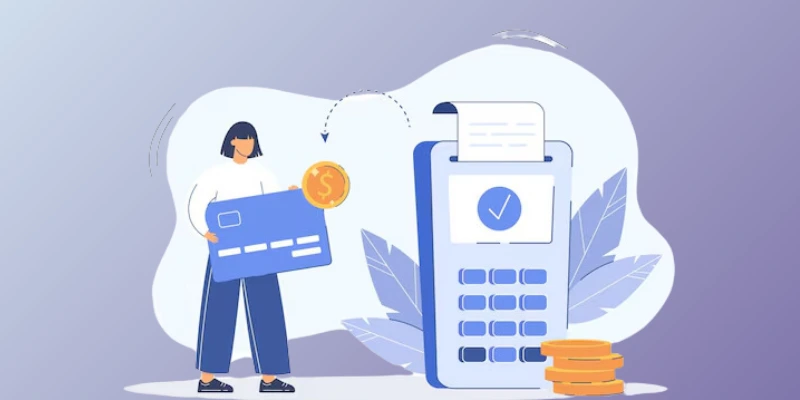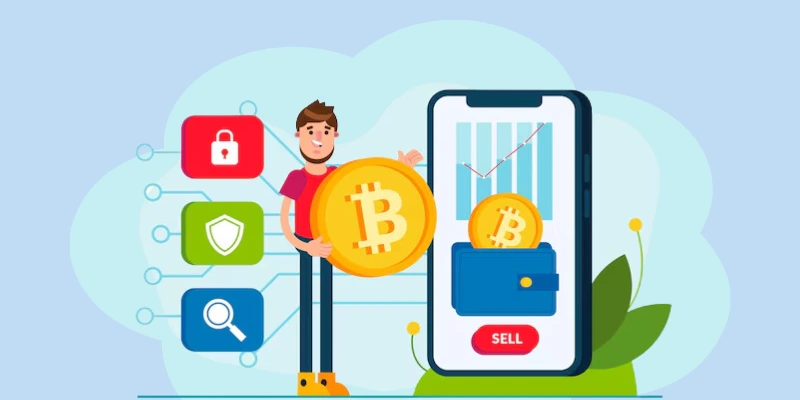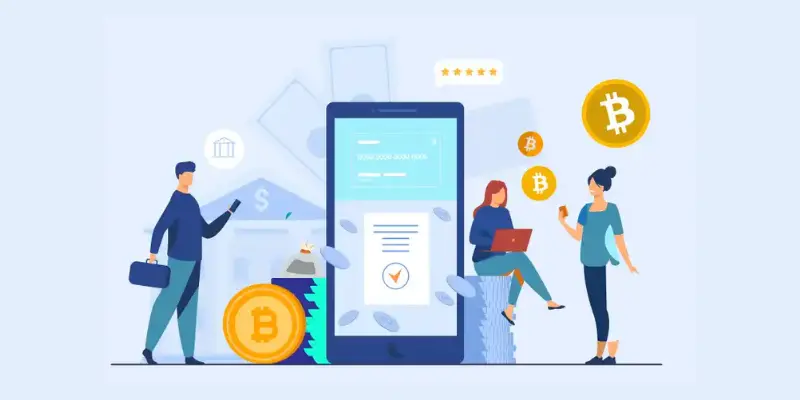Bitcoin and Ethereum have gradually made inroads into mainstream acceptance as more businesses accept them as payment methods. White Label Crypto Payment Gateway allows companies to tap into this expanding market.
Customers increasingly demand payments via digital assets. Major corporations like PayPal, Visa, and Mastercard have already integrated cryptocurrency payment methods into their payment strategies.
What Are Crypto Payment Gateways?
Crypto Payment Gateway Software has quickly become essential tools for businesses looking to exploit its potential. Given the rapid proliferation of cryptocurrency assets like Bitcoin and Ethereum, fast and secure payments have never been more essential. Multi-Currency Crypto Payment Gateway allows merchants to simplify transacting business with customers while simplifying purchasing goods and services for both sides. Virtual checkout counters that accept digital currency payments enable businesses to accept Multi-Currency Crypto Payment Gateway while exchanging it back into fiat currency or keeping it as an asset, depending on individual needs.
How Does a Crypto Payment Gateway Operate?
Multi-Currency Crypto Payment Gateway uses a series of steps to process cryptocurrency payments. Below is an outline of their operation:
At the outset of any transaction, customers typically select products or services from a seller's site and pay with cryptocurrency; all supported coins will be displayed on their payment page.
- Payment Gateway-Generated Request: A payment gateway generates a payment request for every transaction, detailing its amount and cryptocurrency address for money transfer.
- Customer Authorization: Your cryptocurrency client authorizes payment by scanning a QR code or providing their address online.
- Broadcast of Transactions: Once approved, transactions are broadcast over blockchain networks associated with Bitcoin and Ethereum cryptocurrencies (or both if multiple are chosen).
- Blockchain Confirmation: Once transactions are approved, network nodes add them to a blockchain block for approval. Different amounts may be confirmed depending on which cryptocurrency you select - this ensures your transactions remain safe and unalterable.
- Confirmation of Payment: Once Blockchain verifies, gateways notify merchant systems upon successful confirmation and send an additional confirmation message directly to customers.
- Exchange Rate Conversion (Optional): When businesses prefer fiat currency payments over cryptocurrency payments, their White Label Crypto Payment Gateway can convert cryptocurrency payments to their desired fiat currency at an agreed-upon exchange rate.
- Settlement: Once a transaction has been completed and fully paid for, settlement occurs, and merchants receive any converted cryptocurrency funds placed into their accounts; the payment process then concludes.
Read About: Guide to Setting Up Crypto Payment Gateway Software Development
How to Select the Appropriate Cryptocurrency Payment Gateway Business?
Finding an appropriate Multi-Currency Crypto Payment Gateway that accepts cryptocurrency can be daunting, so in this article, we'll outline some key elements you should keep in mind to assess potential service providers. Learn more in our Buyer's Guide for Blockchain and Crypto Payment.
Keep an eye out for how payment processors make their money. Most payment processors charge both a flat fee for every transaction as well as a percentage of its amount - typically anywhere from 0.5%-3.3% depending on which payment method and quantity is selected (many processors offer volume discounts). Regarding cryptocurrency payments, expect charges between 1-3%. Also, remember that payment gateways often markup exchange fees, which might incur unintended charges on consumers at payment time - these could even come out of your own pockets!
Buyers also must pay the network fee, depending on the congestion in the blockchain network. As of July 2023, anyone paying through Bitcoin's Blockchain will incur approximately US$1.3.15 as a network fee.
Timeframes for Processing and Settlement.
Processing and settlement in cryptocurrency are generally quick, though they may take longer due to the number of transactions processed at one time by a blockchain. A cryptocurrency payment processor using multiple blockchains can help speed things up considerably; some providers even ensure payment is sent before being confirmed on the Blockchain - giving merchants immediate response times for payments made with cryptocurrency.
If a business wants to settle cryptocurrency payments with fiat currency, the payment processor must first convert their cryptocurrency holdings to fiat before sending it over bank rails for transfer. Various factors could speed up this transfer, including settlement process speed and agreements between liquidity providers, banks, and payment processors.
Implementation Efficiencies
Utilizing low-code deployment options like hosting payment websites simplifies starting work by teaming with a payment processor. These solutions are quick and easy to enforce while offering merchants peace of mind that their payments will convert successfully. APIs and developer documents provide greater control of payments, including creating customized experiences. When choosing a crypto gateway provider, evaluate their capacity and willingness to offer assistance and guidance as well as compatibility between its payment gateway solution and other payment systems and point-of-sale platforms.
Payer Experience
Payments using cryptocurrency are constantly evolving and the market must work to replicate the seamless "one-click" payment experience that customers are used to from e-commerce. While there are various cryptocurrency payment options, some are more beneficial than others - look for services with tested and proven sites optimized for user experience and conversion, such as integrating with popular wallets or making it simple to select your favorite cryptocurrencies. When embarking on new payment journeys, seek guidance from companies on creating efficient journeys.
Customer Support
Setting up an online payment service may be easy, but getting assistance for payment issues may only sometimes be. Select a provider with an efficient customer support department containing dedicated account managers as well as technical support teams available during hours that work best for your needs. Request that they describe their onboarding experience, which may indicate quality service in future interactions.
Compliance
The regulation of cryptocurrency is constantly shifting worldwide. For this reason, payment gateway services must stay abreast of new developments by hiring an experienced Crypto Payment Gateway Development Company as well as being licensed in a country known for rigorous oversight by regulators (if they've been approved there, they should likely have reliable compliance and risk controls in place). Your partner should use similar risk controls for other forms of payments, too, such as enhanced due diligence systems on clients and periodic independent reviews to ensure their control systems are efficient.
Read Aolso: Benefits of Using a Multi-Currency Crypto Payment Gateway in 2024
Distinctive Features of Cryptocurrency Payment Gateways
Beyond their essential functions, payment gateways stand out amongst their financial peers due to their unique advantages. Let's examine what makes these payment gateways unique.
Security Protocols: Crypto Payment Gateway Software security has evolved into an unbreakable fortress. Modern encryption systems developed by experts act as an impregnable shield protecting transactions from cyber criminals and tampering attempts by cybercriminals. This provides users with added peace of mind.
Multi-Currency Support: Multi-Currency Crypto Payment Gateway exceeds the limit of a single currency. Their flexibility is evident when they incorporate cryptocurrencies, providing customers with numerous choices. Not only does this increase digital transactions' versatility, but it can also help users navigate decentralized finance easily.
Decentralization: These gateways are founded on a revolutionary concept: decentralization. Adherence to Blockchain's principles helps remove intermediaries and cut transaction costs; in doing so, decentralized transactions create an efficient operating environment and free merchants and customers from traditional financial systems' restrictions.
User-Friendly Interface: In the user-oriented world of cryptocurrency-based payment systems, user accessibility is paramount. Clear interfaces designed to enhance users' experiences are essential. From novices just beginning their financial careers to veteran traders navigating this space for themselves - these portals welcome all with open arms, making digital transactions enjoyable experiences.
Smart Contract Integration: Smart contracts provide ports with the potential for innovation by automating pre-defined agreements accurately. Once transactions have concluded, smart contracts streamline them further and eliminate intermediaries, providing newfound efficiency in online transactions.
Scalability: An essential element of White Label Crypto Payment Gateway success, can be seen in their capacity for scaling. Like digital maestros conducting an orchestra, these gateways must have enough capacity to accommodate an ever-increasing volume of transactions without becoming overwhelmed or falling behind in growth potential. Scalability must be possible and vitally necessary in today's constantly shifting and dynamic digital financial landscape.
Advantages of Crypto Payment Gateways
.webp)
Adopting a Multi-Currency Crypto Payment Gateway is an excellent way to realize numerous advantages. They have revolutionized how businesses and individuals conduct financial transactions using digital technology beyond convenience alone - changing the landscape of financial transactions completely. Here are a few benefits contributing to crypto payment gateways' ever-increasing popularity.
Reduced Transaction Costs
Multi-Currency Crypto Payment Gateway plays an essential part in economics by eliminating intermediaries and traditional bank fees - creating an impressive harmony that results in reduced transaction costs and economic benefits for merchants and users. Their performance is an exquisite ode to decentralized financial transactions' efficiency and effectiveness.
Blockchain transactions enable global accessibility. Users now participate from every corner of the earth in this international financial system, participating in transactions across borders that were previously prohibitive. Cryptocurrencies offer unparalleled global accessibility. This has transformed banking services by opening them up to new audiences who might otherwise have needed help accessing services based on geography alone.
Security for Crypto Payment Processors
Crypto payment processors offer enhanced protection with their unbreakable security shield of advanced encryption and blockchain technology's foundations that ensure transactions are safe and tamper-proof. This digital protection reduces fraud risks as well as unauthorized access, instilling confidence among merchants and users alike.
Faster Transactions
Crypto Payment Gateway Software plays a central role in providing speedy transactions. Their non-centralized nature, combined with intelligent contracts' precision, significantly increases transaction processing speed, which ensures that the digital financial market offers users safe and swift financial services.
Payment Gateways to Promote Financial Inclusion
Crypto Payment Gateway Development Company have become pioneers of financial inclusion, providing access to opportunities and services previously inaccessible - helping those without bank accounts access them as the gateways bridge the gaps to ensure everyone feels welcome in global finance systems.
Anonymity and Privacy:
Crypto payment processors offer users the possibility of remaining anonymous during financial transactions, providing more privacy than traditional systems that compromise users' personal information, thus permitting independent and secure transactions.
Also Read: Guide To Develop A Crypto Payment Gateway in 2024
Step-by-Step Guide to Establishing a Crypto Payment Gateway
Developing a crypto fintech application depends on market requirements, technical security features, and user experience considerations. Each step in the development process of White Label Crypto Payment Gateway is essential in creating an outstanding product in cryptocurrency transactions.
Planning and Strategy Step
At first, it is essential to analyze the current payment landscape, along with emerging trends and strategies from competitors, to identify specific segments. Market research allows companies to understand users and their needs better - be they retail clients, online merchants, or large corporations - as well as understand different market characteristics, such as retail client preferences, that will help tailor the features of a gateway accordingly.
Selecting cryptocurrency is another critical decision and should be guided by these factors:
Market Trends Considering Various Cryptocurrencies.
Consider including non-mainstream cryptos beyond Bitcoin or Ethereum as possible options. When researching new or niche currencies, make sure to examine both their technical aspects as well as market acceptance.
Step two of creating an effective and sustainable business plan involves devising an efficient and sustainable revenue model for your gateway. This plan should outline how it will generate profits while meeting customer needs. Revenue sources like transaction charges, premium feature access, or partnerships should all be carefully considered, along with how these models align with your intended market and their effects on user experience. Keeping an eye on the revenue models of competitors offers insight into which approaches work best.
Technical Development Stage.
Selecting a blockchain technology is of utmost importance, with several factors acting as indicators in making the decision:
Transaction Speed, Scalability, Security Features, and Cost Efficiency.
Integration Ease.
Additionally, compatibility with different cryptocurrencies and expansion possibilities should also be key considerations for any platform, especially Ethereum, which offers extensive support and flexibility compared to newer platforms that may provide faster or cheaper services.
Maintaining the security of your wallet is also key to the overall process. Implementing sophisticated security protocols, such as MFA and cold storage, is critical; also consider how your wallet handles private keys and customer friendliness for their users.
At this stage, the goal is to provide an effortless transaction experience for users. Code should be optimized to maximize speed, while the system must be capable of processing high volumes of transactions. Integrating off-chain transactions to increase efficiency and reduce cost is recommended while keeping in mind blockchain congestion and its effect on time-to-complete transactions is equally essential.
Testing and Deployment Stage
Utilize stringent testing techniques, including manual, automated, and usability UX tests and security audits. Stress testing is vital to ensure the system can cope with high-load scenarios; here, QA specialists can identify any vulnerabilities, such as bugs or usability issues in the system.
Engaging a small group of real users for a controlled test phase will give businesses feedback on the user experience and allow them to understand better user behaviors and any possible issues in a live setting.
Launch plans often incorporate marketing, community building, and user educational efforts in their rollout strategy. A gradual rollout may also be considered in order to manage acceptance gradually.
Technical Documentation Stage
Documentation must be comprehensive to facilitate future integrations or updates, acting as a guide for developers in terms of API documentation, integration guides, and effective methods.
Future Trends and Evolutions
Rapid changes in AI and machine learning will shape the future of crypto payment gateways, including smart contracts. We expect the increased use of smart contracts across industries as they take their place within an expanding metaverse. Let's look at recent advancements in the development of Multi-Currency Crypto Payment Gateway.
Artificial Intelligence and Machine Learning for Crypto Payments
Machine learning and Artificial intelligence algorithms are crucial in preventing real-time fraud. By analyzing patterns of transactions and user behavior, these AI/ML algorithms can detect irregularities more efficiently - strengthening crypto-payment security at every point.
Artificial intelligence can enhance user experiences. Its personalized recommendations can optimize payment gateway experiences.
As regulations change, AI and machine learning can assist companies by automating compliance. They ensure transactions comply with current regulations, freeing companies from manually tracking changes.
Conclusion
One of the more efficient international payment options is gradually transitioning towards cryptocurrency-based payments, and tailor-made Crypto Payment Gateway Software can be extremely valuable to companies seeking expansion. Businesses looking to grow must add Blockchain or decentralized apps into their payment systems for maximum effectiveness; creating fully functional custom Multi-Currency Crypto Payment Gateway can also help. Now is the best time to start offering your













Share this blog